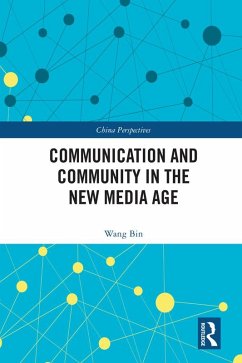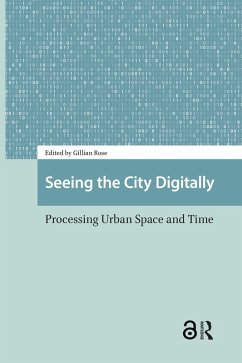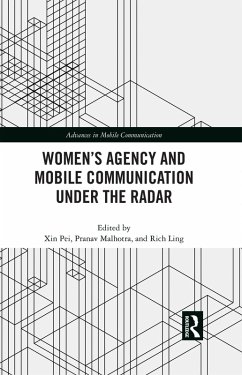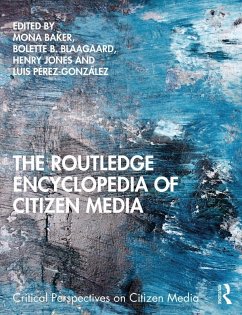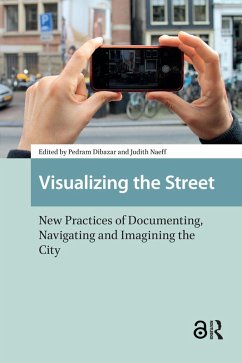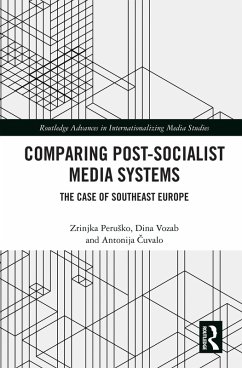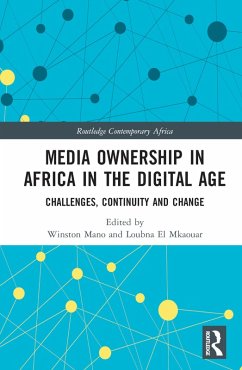
Communication and Community in the New Media Age (eBook, ePUB)
Versandkostenfrei!
Sofort per Download lieferbar
38,95 €
inkl. MwSt.
Weitere Ausgaben:

PAYBACK Punkte
19 °P sammeln!
This book investigates the relationship between information communication and community development in China in the new media age, drawing on theoretical resources from journalism, communication, urban sociology, community management, and the activities of social movements.Contrasting existing scholarship that centers on new technologies and virtual aspects of today's communication, the study highlights community residents' daily praxis in real social spaces and the interaction between online and offline communications. Through content analysis, case studies, questionnaire surveys, and in-dept...
This book investigates the relationship between information communication and community development in China in the new media age, drawing on theoretical resources from journalism, communication, urban sociology, community management, and the activities of social movements.
Contrasting existing scholarship that centers on new technologies and virtual aspects of today's communication, the study highlights community residents' daily praxis in real social spaces and the interaction between online and offline communications. Through content analysis, case studies, questionnaire surveys, and in-depth interviews, the author explores the social engagement of communication in public expressions and negotiations among Chinese urban communities. From micro, meso, and macro levels respectively, three interactive mechanisms are discussed: (1) media use and social consciousness and mobilization; (2) new media and changes in community governance; and (3) state-community interplay. Based on these mechanisms, the author proposes the idea of "the construction of grassroots social communication", exploring approaches to the modernization of social governance and attainment of social interests by optimizing information communication.
Communication and Community in the New Media Age will appeal to academics and students studying communication and social transition in China, new media and society, urban sociology, and public governance.
Contrasting existing scholarship that centers on new technologies and virtual aspects of today's communication, the study highlights community residents' daily praxis in real social spaces and the interaction between online and offline communications. Through content analysis, case studies, questionnaire surveys, and in-depth interviews, the author explores the social engagement of communication in public expressions and negotiations among Chinese urban communities. From micro, meso, and macro levels respectively, three interactive mechanisms are discussed: (1) media use and social consciousness and mobilization; (2) new media and changes in community governance; and (3) state-community interplay. Based on these mechanisms, the author proposes the idea of "the construction of grassroots social communication", exploring approaches to the modernization of social governance and attainment of social interests by optimizing information communication.
Communication and Community in the New Media Age will appeal to academics and students studying communication and social transition in China, new media and society, urban sociology, and public governance.
Dieser Download kann aus rechtlichen Gründen nur mit Rechnungsadresse in A, B, BG, CY, CZ, D, DK, EW, E, FIN, F, GR, HR, H, IRL, I, LT, L, LR, M, NL, PL, P, R, S, SLO, SK ausgeliefert werden.




